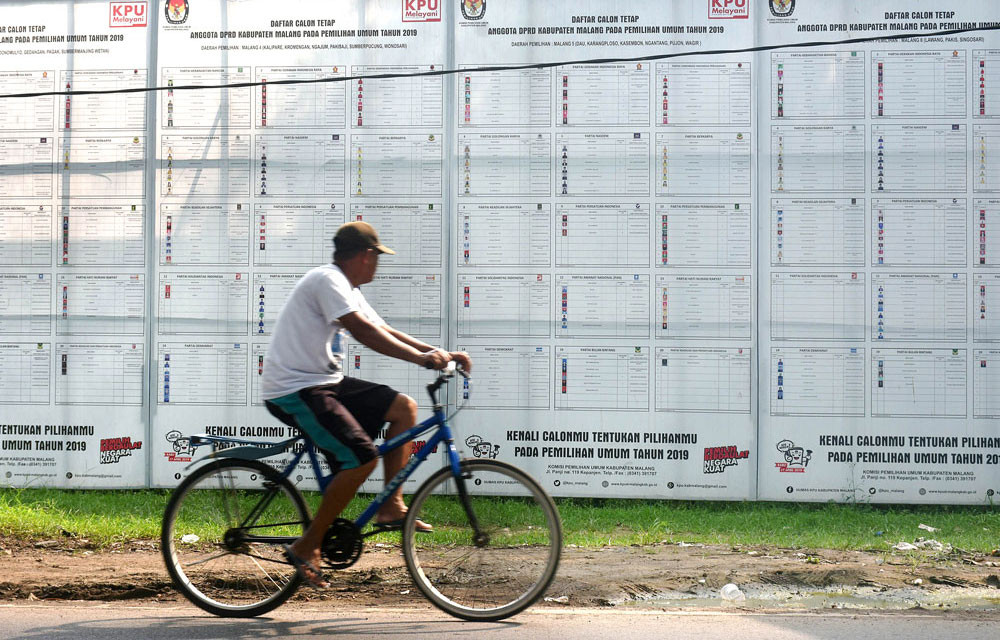Popular Reads
Top Results
Can't find what you're looking for?
View all search resultsPopular Reads
Top Results
Can't find what you're looking for?
View all search resultsPeople’s absolute choice
An election is a mechanism for people to exercise their political rights and make their own choices, but the prevalence of vote-buying needs to be addressed soon, just to make sure elections represent the true voice of the people.
Change text size
Gift Premium Articles
to Anyone
T
he simultaneously held direct presidential and legislation elections have passed. The Constitutional Court has confirmed the reelection of President Joko “Jokowi” Widodo, who will govern the country along with Ma’ruf Amin. Meanwhile, the composition of the next House of Representatives, Regional Representatives Council and regional-level legislatures are also to soon be decided as the court is expected to settle disputes between legislative candidates within the next two weeks.
It is largely believed that the results of the April 17 elections truly reflect the aspirations of the people, as seen in the high turnout of 80 percent of the approximately 192 million eligible voters. The elections were certainly not perfect, as seen by the candidates who filed lawsuits against the results with the court. However, all in all the elections were democratically held, despite reports of vote-buying, particularly in the legislative campaigns.
As the The Jakarta Post’s Special Report reveals today, tough rivalry was evident not only between candidates from different political parties and candidates of the same political party, but also between political parties. Many incumbent House legislators who sought reelection lost to new and even younger faces in the slugfest — various survey institutes have predicted that more than a half of the upcoming House lawmakers are debutants.
The 4 percent electoral threshold proved to be difficult to beat, even for political parties that won legislative seats in 2014. While big parties maintained their performance, smaller parties struggled all the way: Some won more legislative seats and some others lost votes. There is no single explanation as to why some parties managed to progress and others regressed while the Hanura Party missed the cut. However, it is obvious that none of the contesting parties could form a single majority in the legislative council in view of their election achievements.
Internal party disputes and poor images, as can be seen from a number of corruption cases implicating party officials, including the chairman of the United Development Party (PPP), are among the main reasons for the failure of parties to perform in the elections. The Islam-based PPP saw its votes nose-dive but survive the electoral threshold.
One key factor behind the surprising loss of candidates known for their good track records is the alleged vote-buying. The practice is not new in the country, but it gained traction in 2009. Political scientist Burhanuddin Muhtadi found in his PhD research that one-third of voters accepted money or items in exchange for their support for certain candidates in the 2014 election.
An election is a mechanism for people to exercise their political rights and make their own choices, but the prevalence of vote-buying needs to be addressed soon, just to make sure elections represent the true voice of the people.










